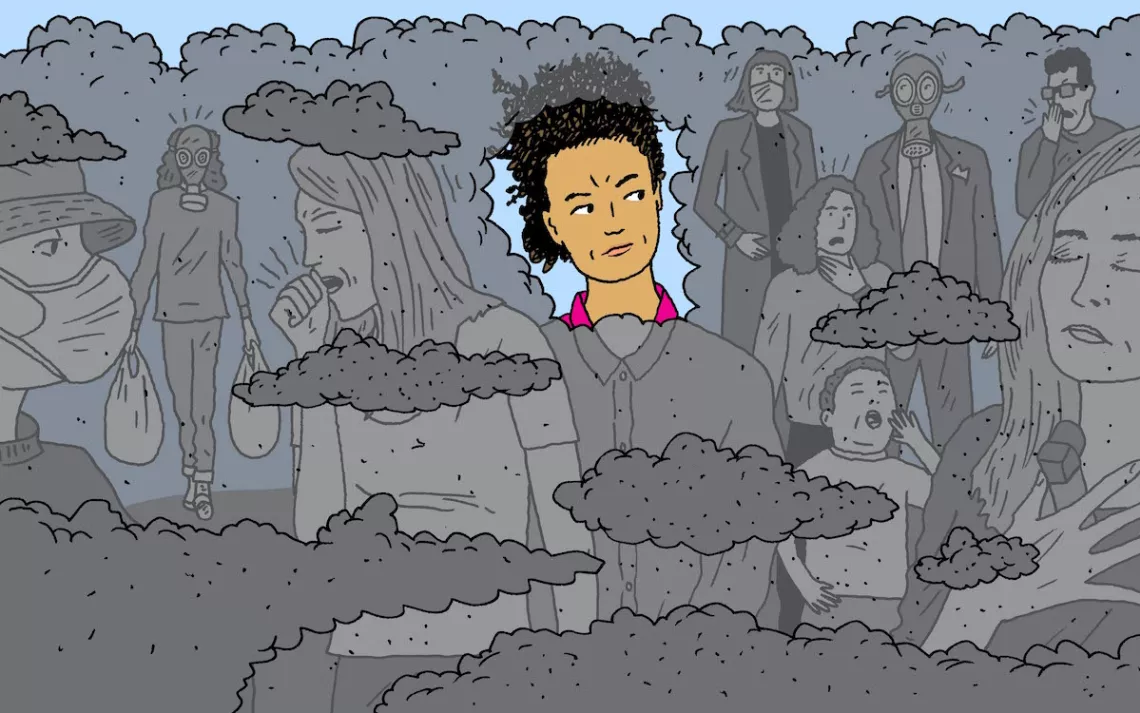ICYMI: Lethal Air, Drunken Raccoons, Crabby Crabbers & More
A weekly roundup for busy people

Illustration by Peter Arkle
According to the World Health Organization, nine out of 10 people worldwide breathe polluted air.
Each year, 17,000 people die in the United States from breathing wildfire smoke. By 2100, that number may rise to 44,000.
With 56 fatalities and 300 people unaccounted for, the Camp Fire in Northern California becomes the deadliest in the state’s history.
On November 15, as a result of the Camp Fire, San Francisco has the worst air quality in the world.
A federal judge blocks construction of the Keystone XL pipeline largely because of climate concerns.
West Coast crab fishers sue 30 fossil fuel companies for their economic losses due to warming ocean waters.
The EPA toughens emissions regulations on big rig trucks, possibly in order to preempt more stringent standards from California.
Trey Glenn, the Southeast regional administrator of the EPA, is indicted for multiple violations of Alabama’s ethics laws.
The oddly behaving raccoons that people in Milton, West Virginia, feared had rabies turned out to only be drunk on fermented crab apples.
David Vela is confirmed as the first Latino director of the National Park Service, despite concerns from environmentalists and civil libertarians.
Coal-mining giant Cloud Peak Energy is considering selling the company. The company’s board eliminates health care for retirees but approves bonuses equal to a year’s salary for the management team.
Before Westmoreland Coal went out of business in October, it paid out more than $10.2 million in salary, bonuses, and severance to eight current and former executives.
Rich people in Paris and the Gulf States are renting lion cubs to appear in selfies with them in their sports cars.
Senate majority leader Mitch McConnell (R-Ky) promises that the final version of the Farm Bill will include the legalization of hemp.
Scientists discover the impact crater of an iron asteroid nearly a mile across that hit northern Greenland, possibly within the past 100,000 years. The effect of its impact could explain the 1,000-year-long cooling period known as the Younger Dryas, as well as the extinction of North American mammoths and the Clovis people who hunted them.
In Mozambique, poaching of elephants for their ivory has led to an increase in the number of tuskless females.
Stung by international criticism, China drops (at least temporarily) its plan to legalize the trade in tiger bones and rhinoceros horns.
A trapper in the Everglades sets a new record by capturing a 17-foot, 5-inch Burmese python weighing 120 pounds.
 The Magazine of The Sierra Club
The Magazine of The Sierra Club



